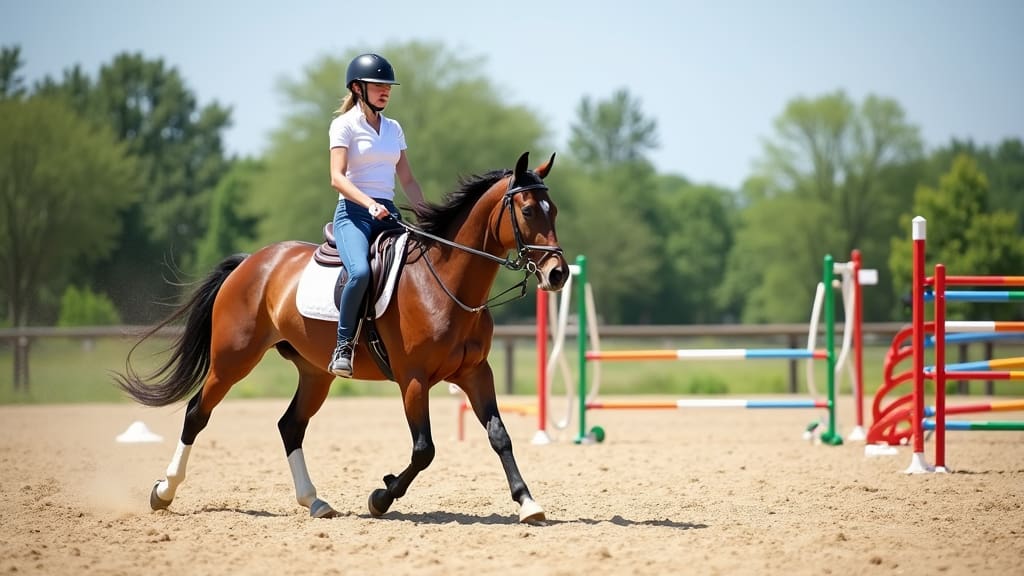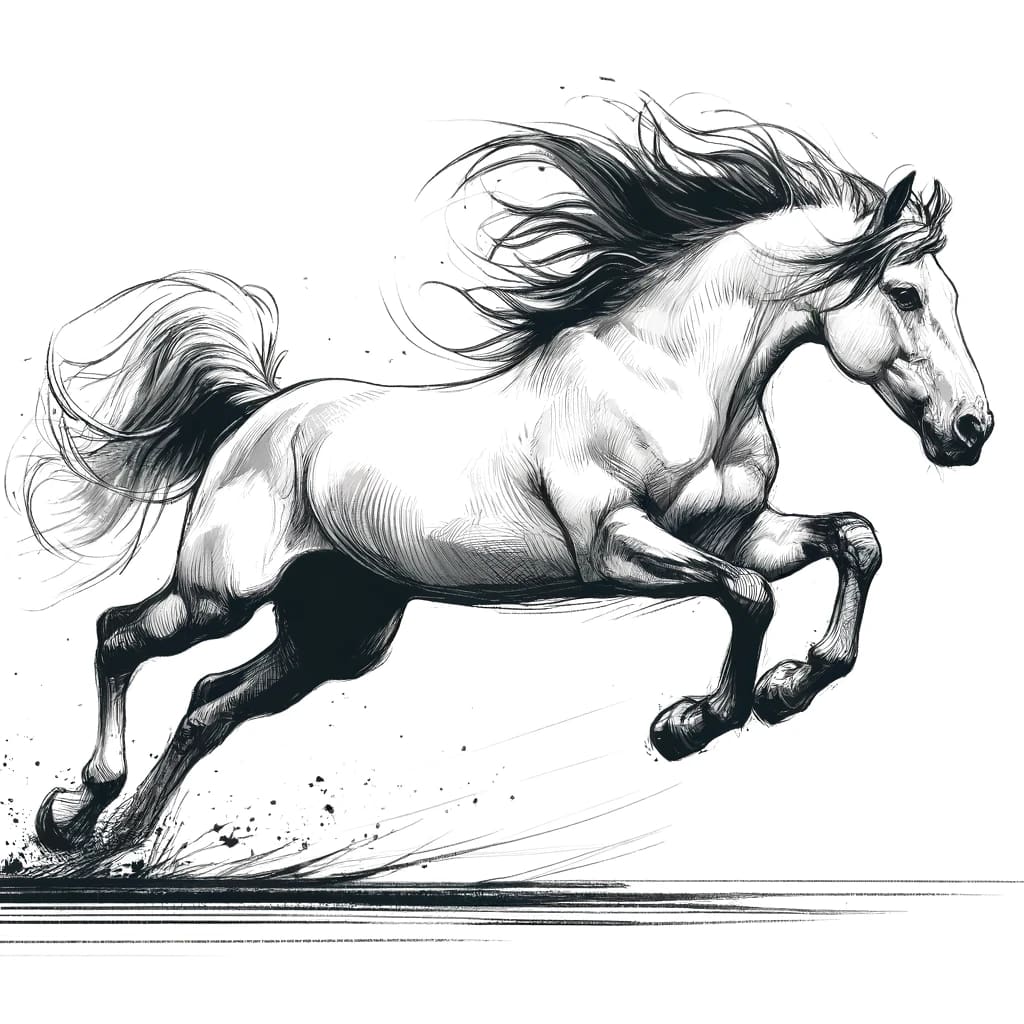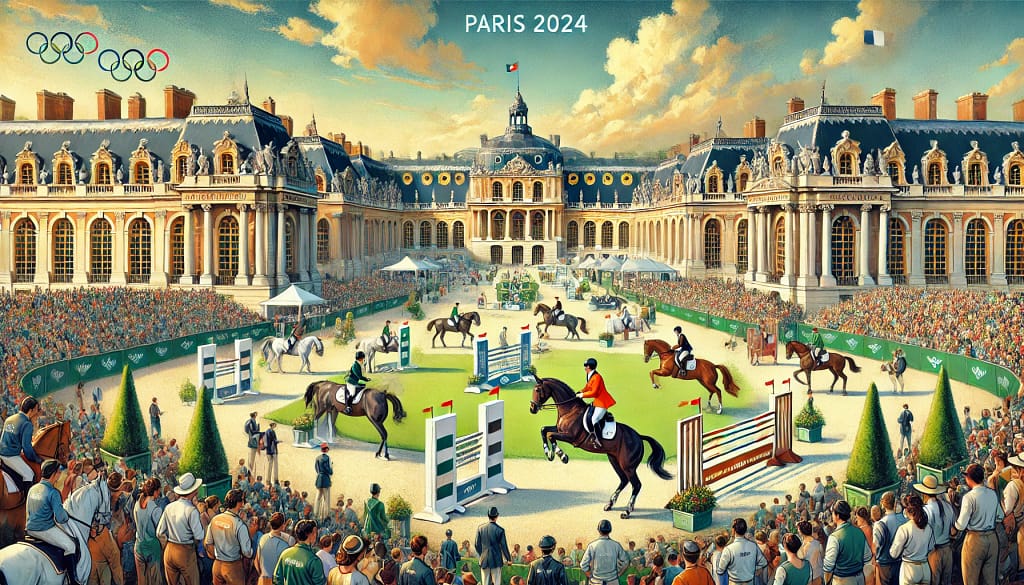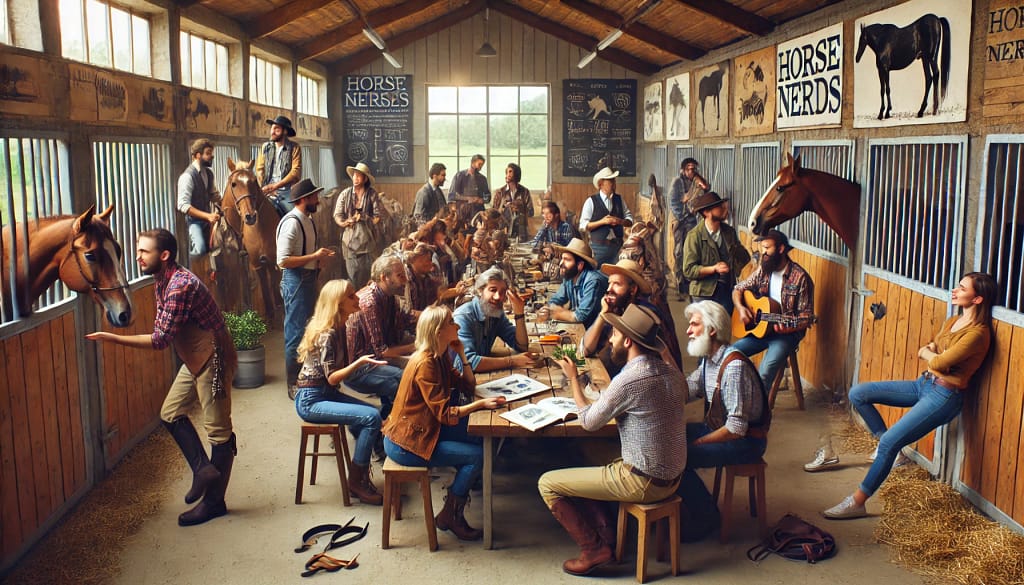Training is one of the core factors in the recipe for success in any competitive horse sport. From elegant dressage tests to intense show jumping rounds, a knowledgeable trainer’s approach shapes a horse’s foundation and gives riders that extra edge in the arena. In this article, I’m going to walk through the many ways trainers contribute. They offer much more than calling out instructions at ringside.

The Trainer’s Impact in the World of Competitive Horse Sports
The trainer’s role in horse sports covers a huge spectrum. It’s pretty easy to think of trainers as “riding teachers,” but their work goes way deeper. Training blends horsemanship, sports psychology, fitness, and advanced knowledge of equine behavior. In competitive sports like eventing, show jumping, dressage, barrel racing, and more, trainers basically act as a guide not just for the horse but also for the rider.
Competitive horse sports are growing rapidly. In the U.S. alone, the American Horse Council estimates there are over 4.6 million Americans involved in some form of horse competition. With ever-rising standards and stricter judging, having a skilled trainer is pretty important for staying safe, making progress, and even enjoying the process.
Trainers usually have years, sometimes decades, of hands-on experience, certifications from sport federations, or a proven track record with competitive horses. Learning from someone who’s been deep in the circuit can give a huge boost to a rider or horse’s progress compared to going it alone.
Building Foundations and What Trainers Actually Do
Before galloping toward blue ribbons, every horse goes through focused groundwork. A good trainer molds both horse and rider right from the basics, ensuring every little skill is polished before the flashy stuff begins. Here are a few things trainers focus on:
- Develop Communication: Trainers show riders how to give clear, fair cues. Horses, in turn, learn to trust and understand their humans.
- Conditioning and Fitness: Both horse and rider need to be in solid shape. Trainers put together conditioning routines that fit the demands of their sport.
- Foundation Skills: Nobody skips “the basics.” Even top show jumpers spend time on flatwork, transitions, and nailing the allimportant halt.
Trainers also create custom routines for each horse. Some ponies need confidence; others have talent but need focus. This tailored approach pays off big when the show season rolls around.
Prepare for Competition with Hands-On Guidance
As show day gets closer, the trainer’s role moves from daily lessons to much more targeted support.
- Show Preparation: Trainers help plan which classes to enter (and sometimes which shows to skip), prep horses mentally and physically, and set realistic goals.
- Strategy Sessions: Knowing how to walk a jumping course, memorize a dressage test, or plan a barrel pattern gets way easier with trainer guidance.
- Rider Nerves: Even experienced riders get nervous. Trainers offer strategies to stay focused and positive, often sharing their own stories from the ring. Their encouragement is truly invaluable in these moments.
- Warm-Up Help: Trainers support riders in the warmup arena, keeping everybody calm in the midst of chaos and making last-minute tweaks.
This support can make a huge difference, especially for those riding at a new level or working with an inexperienced horse.
Obstacles and How Trainers Tackle Them
Competitive riding isn’t always a smooth canter. Trainers are pros at troubleshooting problems, usually spotting issues before they turn into major setbacks:
- Confidence Issues: Maybe the horse spooked, or a bad round is weighing on the rider’s mind. Trainers focus on rebuilding confidence, often by taking a step back and rebuilding basic skills.
- Plateaus: When progress stalls, a new exercise or a fresh trainer perspective usually gets things moving again.
- Behavior Problems: Bucking, refusals, or “ring sour” horses aren’t uncommon. Trainers help make out whether these are training gaps, physical issues, or communication troubles.
- Injuries: If injury strikes, a trainer’s strategy for rehab and careful reintroduction makes the return to competition much smoother.
Work Through Setbacks
It’s inspiring to see trainers turn things around by breaking things down into tiny steps and building trust. Whether it’s a spooky horse after a fall or a rider who’s lost their nerve, small, structured exercises and steady encouragement will always outweigh dramatic overhauls.
Stay Updated
The world of competitive horse sports is constantly evolving. Motivated trainers keep learning by attending clinics, checking out new training methods, and sharing ideas with other professionals. This “always learning” attitude rubs off on their students, keeping everyone excited and motivated to improve.
Cool Trainer Skills That Make a Big Difference
Trainers often bring some pretty eye-catching extras to the ring. Here are a few things many offer that go beyond the basics:
- Video Review: Watching videos of ride rounds with a trainer can show off little habits or timing issues you might not notice in person.
- Goal Setting: Setting up goals, whether it’s nailing a canter lead or placing in the top three, keeps riders motivated and the progress steady.
- Horse Selection Advice: If you’re looking to buy or lease, trainers often have solid advice or connections to help track down a horse that fits your goals and your budget.
- Mentorship: Trainers help nurture a team spirit at the barn, making it easy for new riders to learn from those with more experience and building a supportive community.
All these extras add up to a much fuller training experience and often help riders stick with the sport for years.
Common Challenges Facing Trainers and Riders
Horse sports come with their own unique set of headaches. Here are a few that pop up the most, plus how trainers work through them:
- Finding the Right Approach: Every horse learns at a different pace. A skilled trainer switches up their methods to fit different personalities and learning styles.
- Time Management: Balancing work or school with riding is tough. Your trainer can map out realistic training schedules so progress happens without burning out riders or horses.
- Budget Worries: Competing isn’t cheap in horse sports. Trainers often make it easy to stretch lesson value, suggest group rides, or find part-share opportunities to help those on a tighter budget.
- Barn Drama: Just like any team sport, personalities sometimes clash. Trainers keep attention locked on learning and growing by building a positive, respectful barn culture.
Stay Motivated
There are always highs and lows through any competitive season. What sets great trainers apart is their ability to help riders and owners keep sight of the big picture, celebrate every small win, and not let setbacks define the whole adventure. Community, encouragement, and perspective go a long way in keeping spirits high and goals alive.
Frequently Asked Questions
Here are some of the most common questions about trainers in horse sports:
Question: How do I choose the right trainer for my discipline?
Answer: Look for trainers with actual experience in your specific sport, positive references, and a teaching style that feels comfortable. Try a few lessons and chat with current students before you make a long-term decision.
Question: What does a trainer actually do on show day?
Answer: Trainers coordinate schooling times, walk courses, help manage nerves, and give lastminute tips. Many also help with horse care and handling between classes, so you can focus on doing your best in the ring.
Question: How often should I take lessons with my trainer?
Answer: It depends on your goals and availability, but weekly lessons are typical for serious competitors. Some add extra rides and check in more often leading up to major shows for extra prep.
Final Thoughts
Trainers bring so much more to competitive horse sports than just lessons. Their expert guidance, deep experience, and consistent encouragement help horses and riders become the best they can be. If you’re aiming for success in competition, at any level, having a good trainer by your side can really transform your entire ride.
No matter your discipline, working with a skilled trainer makes the sport safer, more rewarding, and pushes you to grow and challenge yourself in all the best ways. So, if you’re serious about taking up horse sports, teaming up with a great trainer might just be the game changer you need.



